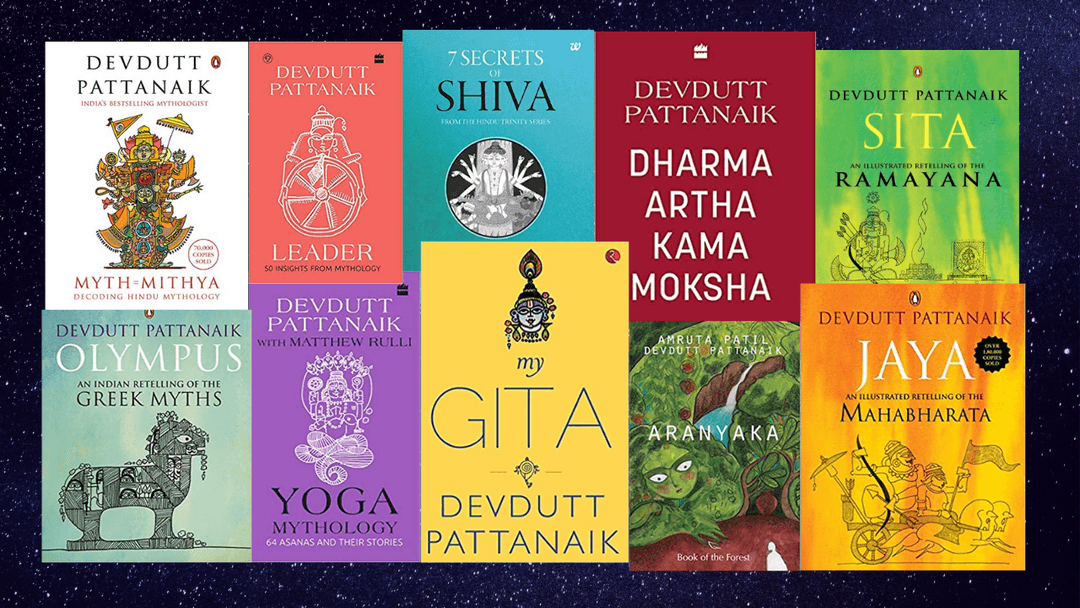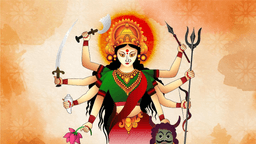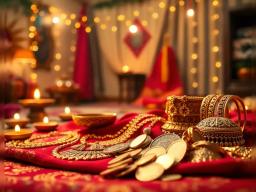Hindu mythology, with its rich tapestry of characters, stories, and philosophies, has inspired countless literary works over the centuries. From ancient epics to contemporary retellings, these stories continue to captivate readers with their timeless themes and moral complexities. This article explores a selection of notable Hindu mythology books that offer deep insights and engaging narratives.
Whether through faithful translations of ancient texts or imaginative modern reinterpretations, these works reflect the enduring relevance and universal appeal of Hindu myths. Each book provides a unique lens through which to view these age-old tales, offering new perspectives and fresh interpretations that resonate with contemporary readers.
Mahabharata of Vyasa by M.N. Dutt
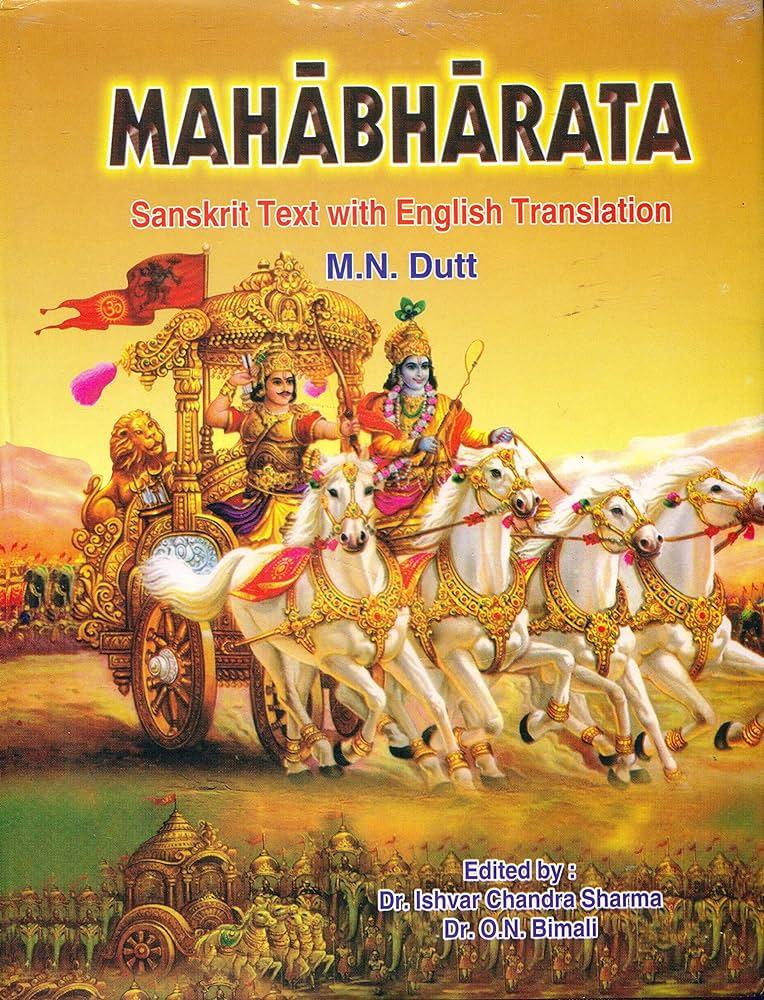
M.N. Dutt’s translation of the Mahabharata is a monumental work that brings the grandeur of Vyasa's epic to English readers. This version remains faithful to the original Sanskrit text, preserving the intricacies of the story and the depth of its characters. Dutt’s meticulous translation captures the complex narrative of the Mahabharata, detailing the epic battle of Kurukshetra, the moral dilemmas faced by its characters, and the overarching themes of dharma (duty/righteousness) and karma (action). It provides detailed descriptions of key events such as the game of dice, the exile of the Pandavas, and the teachings of the Bhagavad Gita.
The translation also includes various subplots and character arcs, offering a comprehensive understanding of the epic’s vast and intricate storyline. Dutt’s work is invaluable for anyone seeking an authentic and detailed rendition of one of Hinduism’s greatest epics, highlighting the philosophical and ethical questions that continue to resonate with readers today. This is one of the best books on Hindu mythology for those seeking a deep dive into this ancient epic.
The Immortals of Meluha by Amish Tripathi
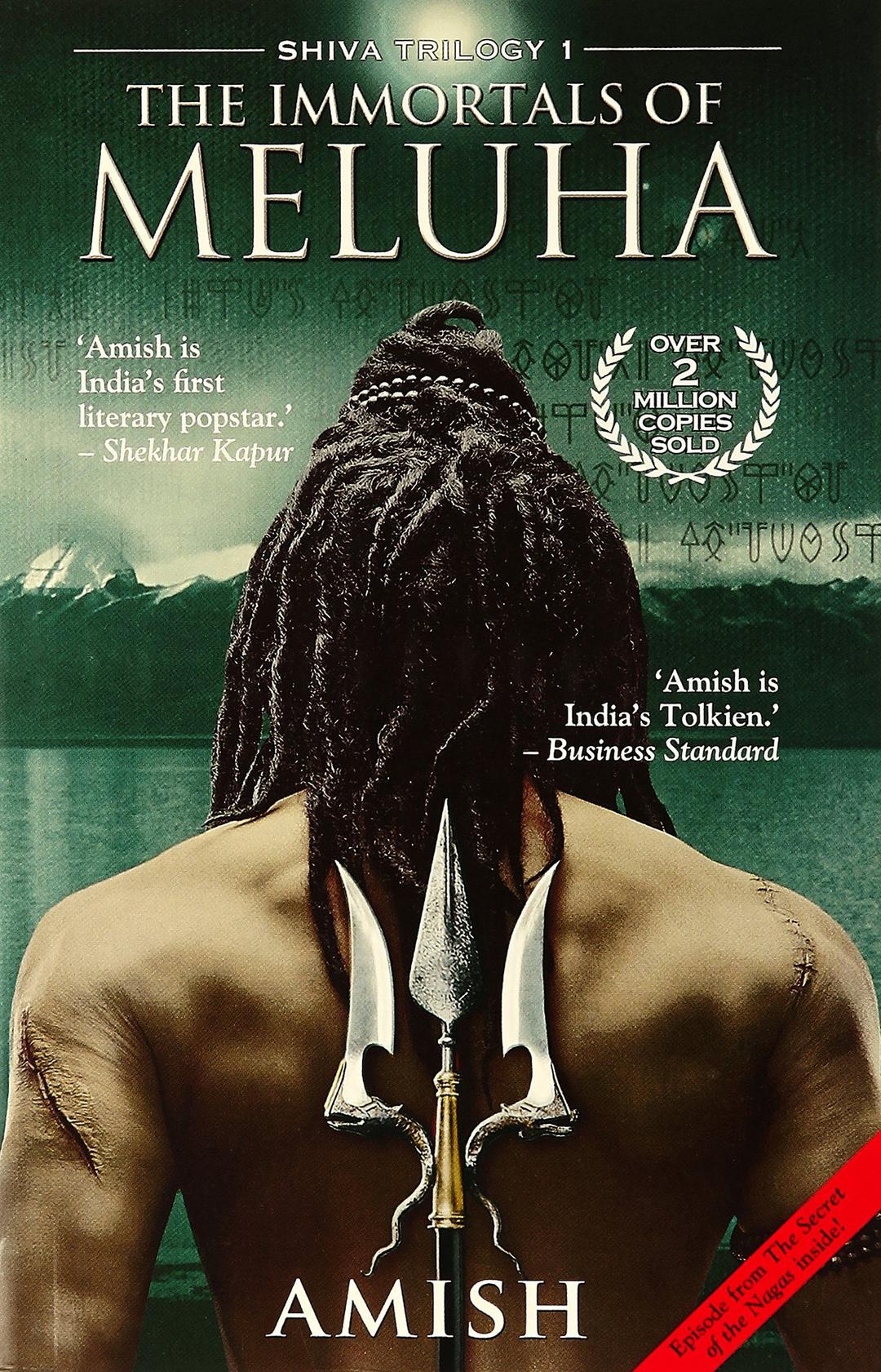
Amish Tripathi’s "The Immortals of Meluha" is the first book in the Shiva Trilogy, reimagining the god Shiva as a mortal warrior. Set in the land of Meluha, which is identified with the Indus Valley Civilization, the story presents Shiva as a Tibetan tribal leader who migrates to Meluha and is hailed as the prophesied saviour, the Neelkanth. The narrative blends mythological elements with historical fiction, creating a unique portrayal of Shiva’s transformation from a man to a god.
The book explores themes of good versus evil, the search for truth, and the nature of divinity, while also delving into the political and social structures of the Meluhan society. Tripathi’s imaginative world-building and character development make "The Immortals of Meluha" a compelling read, offering a fresh perspective on ancient myths and their relevance in the modern world. It stands out as one of the best books on Hindu mythology for its innovative retelling of Shiva's story.
The Palace of Illusions by Chitra Banerjee Divakaruni
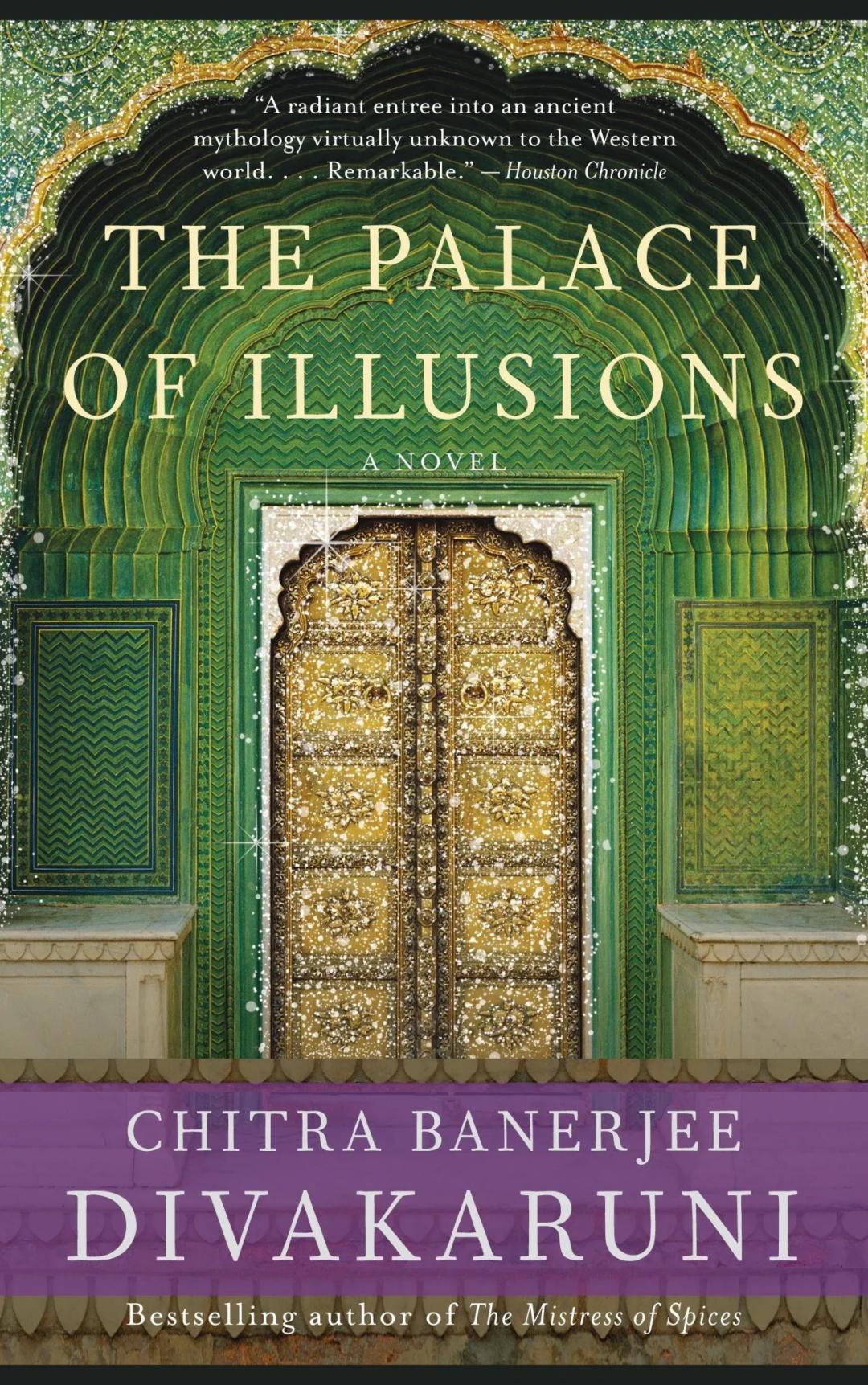
"The Palace of Illusions" by Chitra Banerjee Divakaruni is a retelling of the Mahabharata from the perspective of Draupadi, one of its central female characters. This novel provides a fresh and feminist take on the epic, delving into the inner world of Draupadi, her thoughts, emotions, and motivations. The narrative follows her life from her birth out of fire, through her marriage to the five Pandava brothers, the infamous dice game, and the eventual war of Kurukshetra.
Divakaruni’s portrayal of Draupadi adds depth to her character, exploring her desires, ambitions, and the challenges she faces as a woman in a patriarchal society. The novel also highlights her relationships with key characters like Krishna and Kunti, providing a nuanced understanding of her role in the epic. By focusing on Draupadi’s perspective, Divakaruni brings to light the experiences and struggles of women in a male-dominated society, offering a deeper understanding of her character and her pivotal role in the Mahabharata. This book is a must-read among Hindu mythology books for its unique viewpoint.
The Krishna Key by Ashwin Sanghi
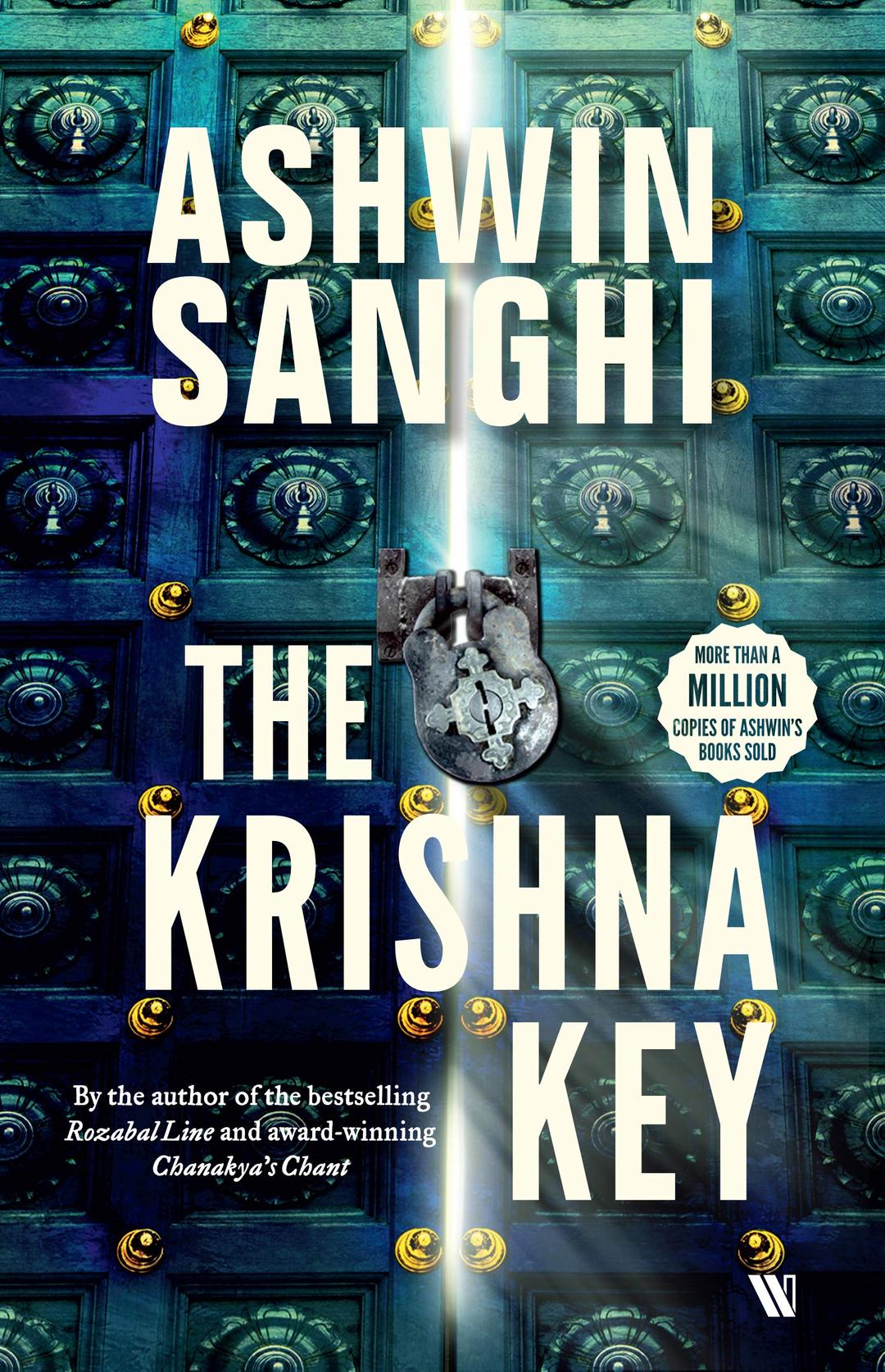
Ashwin Sanghi’s "The Krishna Key" is a contemporary thriller that intertwines ancient mythology with a modern-day murder mystery. The story revolves around a history professor, Ravi Mohan Saini, who is accused of murdering his childhood friend and embarks on a quest to prove his innocence. As he delves deeper into his research on Krishna, he uncovers secrets that link the ancient past to present-day events.
The novel is rich in historical and mythological references, drawing connections between the legend of Krishna and historical artefacts, symbols, and locations. Sanghi’s intricate plot and meticulous research make "The Krishna Key" a gripping read that bridges the gap between the ancient and the modern. The novel explores themes of faith, destiny, and the quest for truth, while also delving into the mysteries surrounding Krishna’s life and legacy. For those interested in Hindu mythology books that blend history and mystery, this is a perfect choice.
Asura: Tale of the Vanquished – The Story of Ravana and His People by Anand Neelakantan
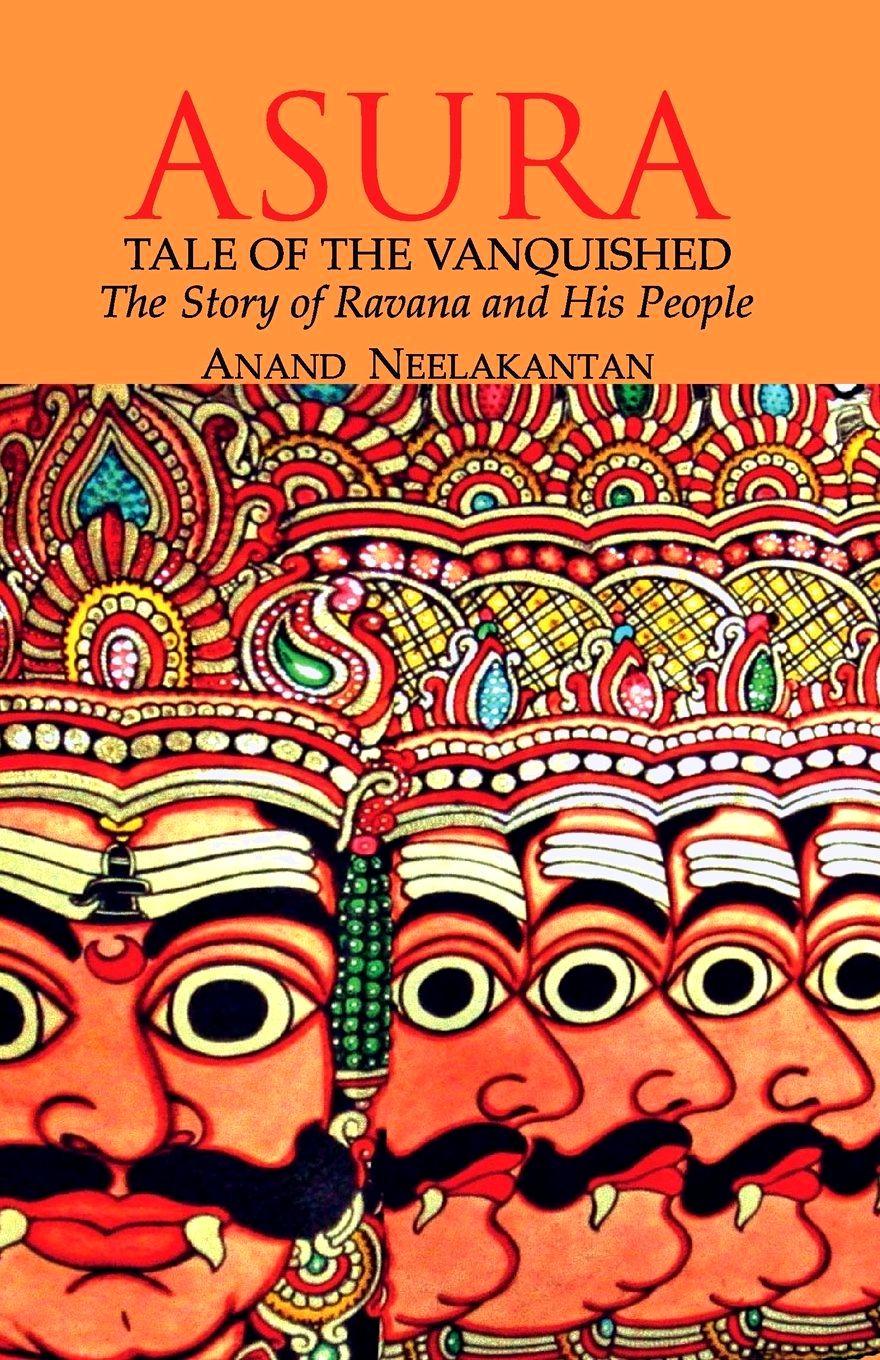
Anand Neelakantan’s "Asura: Tale of the Vanquished" offers a unique perspective on the Ramayana by narrating the story from Ravana’s point of view. This novel humanizes Ravana, portraying him not as a one-dimensional villain but as a complex character with dreams, ambitions, and flaws. It explores his rise to power, his rule over Lanka, and his eventual downfall, providing a nuanced portrayal of his character and his people.
Neelakantan delves into Ravana’s relationships with his family, his devotion to Shiva, and his vision for Lanka, offering a sympathetic view of a character often vilified in traditional retellings. By giving voice to the Asuras, the novel challenges the conventional narrative and invites readers to reconsider the concepts of good and evil, victory and defeat. "Asura" also highlights the socio-political dynamics of Ravana’s time, providing a broader context for his actions and decisions. This book stands out among the best books on Hindu mythology for its daring perspective.
The Pregnant King by Devdutt Pattanaik
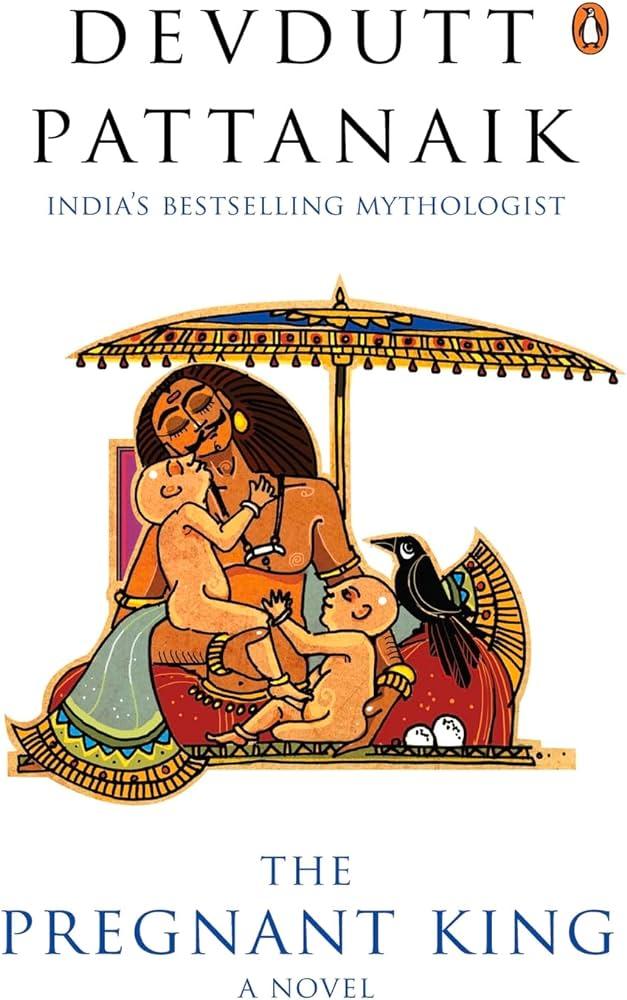
Devdutt Pattanaik’s "The Pregnant King" is a novel that explores the fluidity of gender and the complexity of identity in Hindu mythology. The story is centred around King Yuvanashva, who accidentally drinks a magical potion intended to make his queens pregnant and ends up bearing a child himself. This extraordinary event leads to a profound exploration of gender roles, societal expectations, and the nature of masculinity and femininity.
Pattanaik weaves together various myths and stories from the Mahabharata and other ancient texts to create a thought-provoking narrative that challenges conventional notions of gender and power. The novel delves into Yuvanashva’s internal struggles, his relationship with his child, and the reactions of those around him, offering a nuanced portrayal of his journey. "The Pregnant King" invites readers to question rigid gender norms and embrace the fluidity and diversity of human experience, making it a standout among Hindu mythology books.
Lanka’s Princess by Kavita Kane
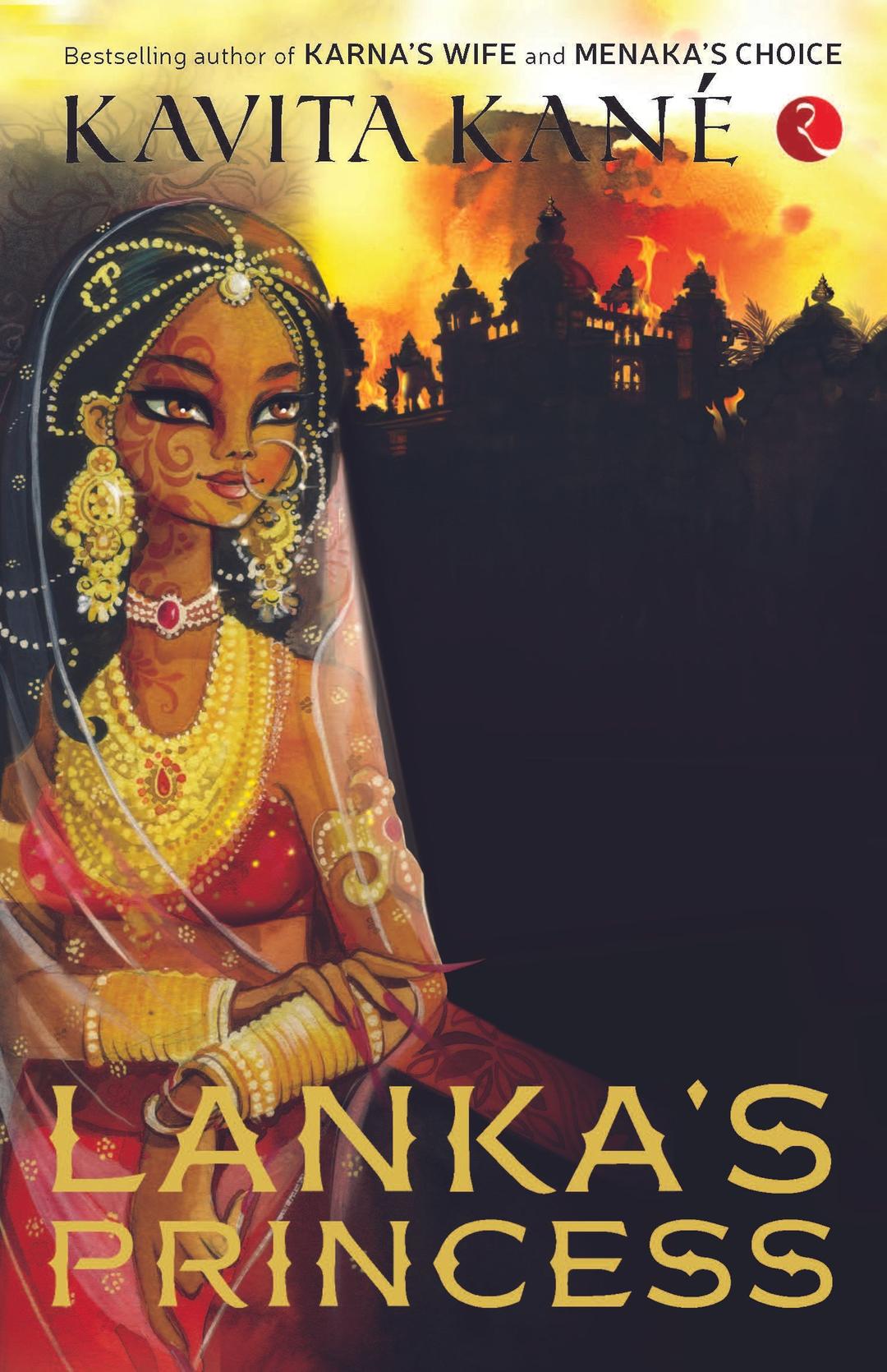
Kavita Kane’s "Lanka’s Princess" delves into the life of Surpanakha, the sister of Ravana, offering a fresh perspective on the Ramayana. Often depicted as a vengeful and malevolent character, Surpanakha’s story is reimagined to reveal her motivations, desires, and the circumstances that shaped her actions. The novel explores her relationships with her family, her unrequited love for Lakshmana, and her pivotal role in the events that lead to the war between Rama and Ravana.
Kane’s portrayal of Surpanakha adds depth to her character, transforming her from a mere antagonist into a complex and relatable figure. The novel also delves into Surpanakha’s childhood, her relationship with her brother Ravana, and her experiences as a woman in a patriarchal society, offering a sympathetic and nuanced view of her character. "Lanka’s Princess" is a significant addition to the list of best books on Hindu mythology.
Dharmyoddha Kalki by Kevin Missal
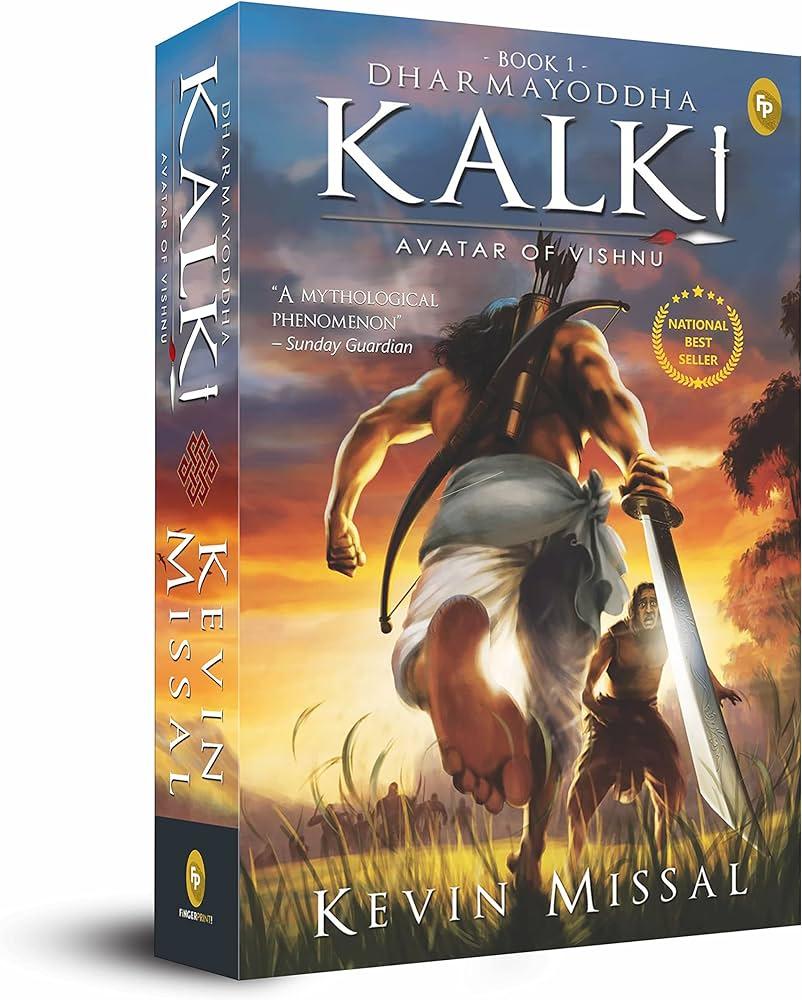
"Dharmyoddha Kalki" by Kevin Missal is a modern mythological thriller that reimagines the legend of Kalki, the prophesied tenth avatar of Vishnu. Set in a dystopian future, the story follows Kalki Hari, a village boy with extraordinary abilities, who embarks on a journey to defeat the forces of evil. The novel blends action, adventure, and mythology, creating a fast-paced and engaging narrative.
Missal’s portrayal of Kalki as a reluctant hero who grapples with his destiny and moral dilemmas adds a contemporary twist to the traditional myth, making it relevant to modern readers. The book explores themes of destiny, duty, and the struggle between good and evil, while also delving into the socio-political dynamics of the world Kalki inhabits. Missal’s imaginative world-building and character development make "Dharmyoddha Kalki" a compelling read for fans of Hindu mythology books.
The Pandava Series by Roshani Chokshi
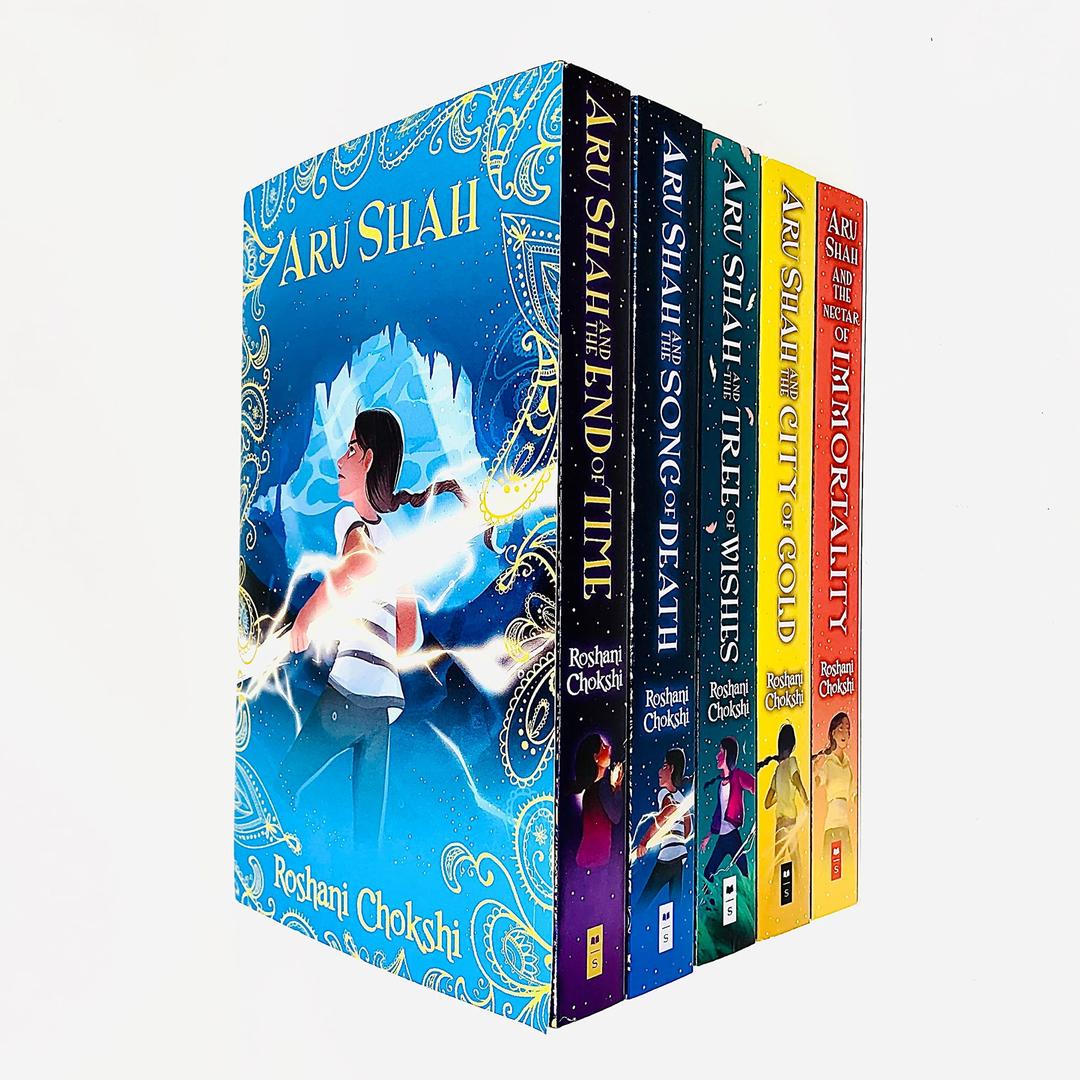
Roshani Chokshi’s "The Pandava Series" is a contemporary fantasy series that draws inspiration from the Mahabharata. The story follows Aru Shah, a young girl who discovers her divine heritage and embarks on a series of adventures to save the world from ancient forces of darkness. The series blends elements of Hindu mythology with modern-day settings, creating a unique and engaging narrative.
Chokshi’s imaginative storytelling and rich character development bring the mythological characters and themes to life, making the series appealing to both young readers and adults. The books explore themes of identity, friendship, and the struggle between good and evil, while also delving into the complexities of family and destiny. Chokshi’s portrayal of Aru Shah as a relatable and dynamic protagonist adds depth to the series, making it a captivating read for fans of fantasy and Hindu mythology books.
Ahalya by Koral Dasgupta
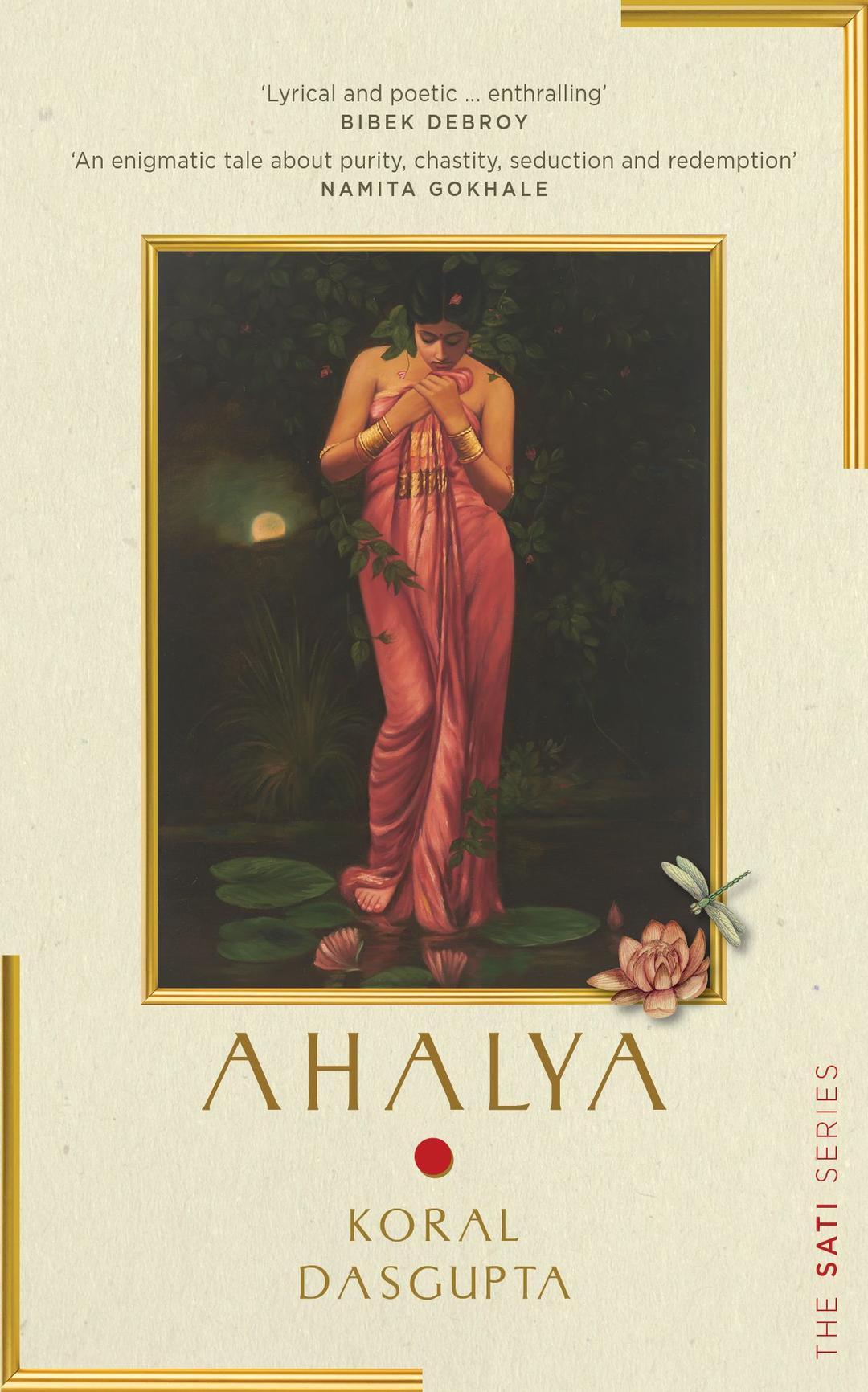
Koral Dasgupta’s "Ahalya" is a retelling of the story of Ahalya, a character from Hindu mythology who is often remembered for her curse and redemption. The novel reimagines Ahalya’s life, exploring her thoughts, emotions, and experiences beyond the traditional narrative. Dasgupta delves into Ahalya’s relationships with her husband, the sage Gautama, and the god Indra, who disguises himself to seduce her. The novel provides a sympathetic and nuanced portrayal of Ahalya, highlighting her strength, resilience, and wisdom.
By giving voice to Ahalya, Dasgupta challenges the conventional portrayal of her as a passive victim and instead presents her as a complex and multifaceted character. The novel also explores themes of love, betrayal, and the quest for self-discovery, offering a fresh and insightful perspective on a well-known myth. "Ahalya" is a notable entry among Hindu mythology books for its deep and introspective take on this legendary character.
Conclusion
The enduring legacy of Hindu mythology is vividly brought to life in these diverse literary works. From M.N. Dutt’s faithful translation of the Mahabharata to Amish Tripathi’s imaginative reimagining of Shiva, each book offers a unique perspective on these ancient stories. Whether through the feminist retelling of Draupadi’s life in "The Palace of Illusions" or the thrilling modern mystery of "The Krishna Key," these narratives continue to captivate and inspire.
By exploring themes of duty, identity, and the eternal struggle between good and evil, these books remind us of the timeless wisdom embedded in Hindu mythology and its relevance in our modern world. These are some of the best books on Hindu mythology that not only entertain but also provide profound insights into the rich cultural heritage of Hindu myths.
Test your knowledge of Indian Mythology. Visit: https://www.quizzop.com/indian-mythology-quiz/category
